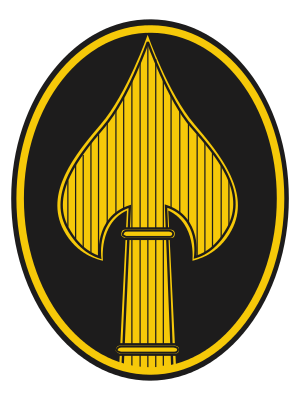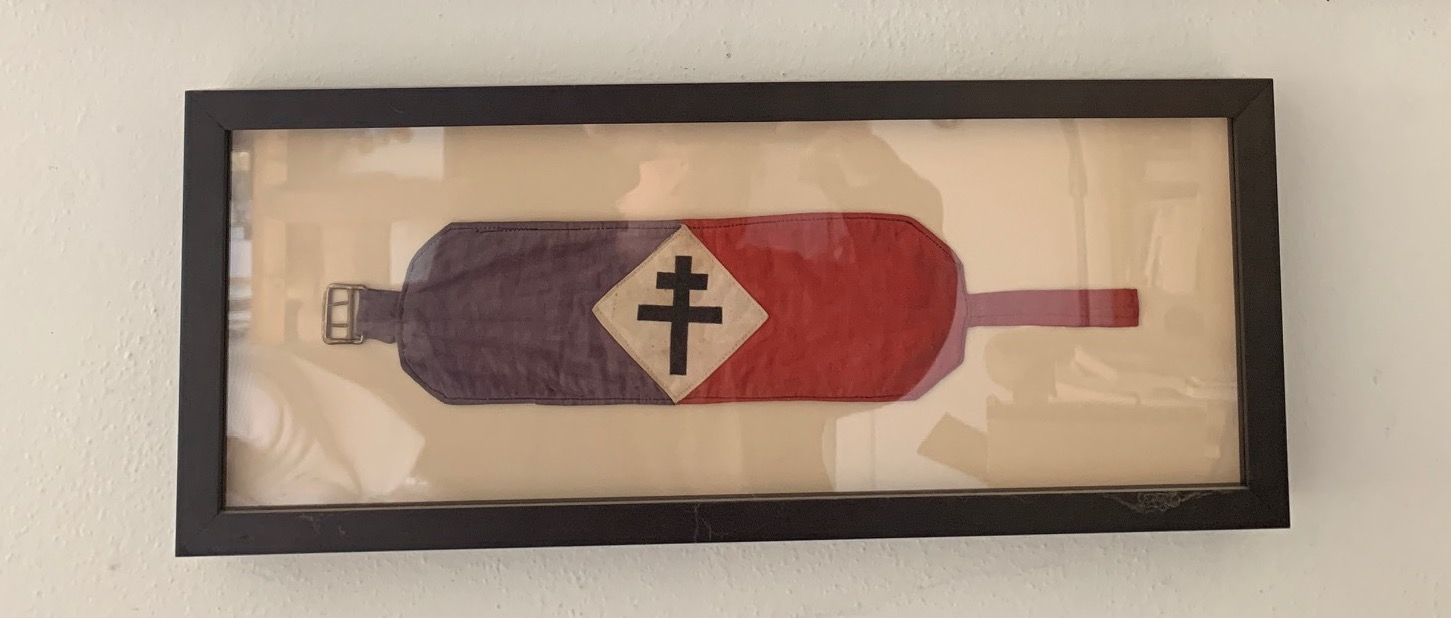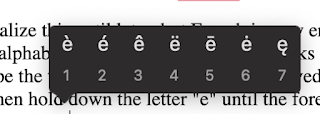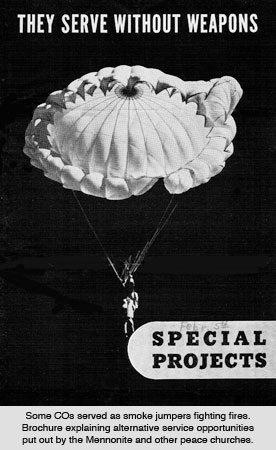 |
| OSS Insignia |
I heard from a historian yesterday who specialized in the OSS Operational Groups, and ... Well, buckle your seatbelts and brace yourself for a paradigm shift: The conscientious objector may not have actually been a CO, and he might have lied to my grandfather.
The irony here is really thick: the decision to finally go ahead and immigrate to America might have been at least partially based on a lie. That irony appeals to the writer in me. Still, it also makes me a little uncomfortable as Arthur's granddaughter because it implies that my grandfather either fell for a deception OR he got some part of the story significantly wrong.
The case for the lie:
The group description, timing, and location all point to the OSS Operational Group JUSTINE. It was a 15-man group that parachuted into the Vercors on 28 June, conducted ambushes against the Germans, and was on the run or hiding for much of the time. From the website linked above, we also know the following:
23 July-15 August. With German forces surrounding and patrolling the Vercors, the Section headed north toward the Chartreuse Mountains. An 11-day period was spent in the woods, the Section surviving on raw potatoes and occasional cheese. With Maquis help the Section, in weakened condition, reached the Belledonne Mountains.
17 August. 11 airmen joined the Section.
If my grandfather encountered JUSTINE, then it was probably the group from August 17th that he encountered.
The historian knew the members of the group personally, and here are some excerpts from what he wrote me:
- The elements that dropped in were so small, that there would not be the ability to accommodate a CO in a denied environment. Each man had to be able to and willing to fight. The OGs went through a selection and assessment process, and a training regime that was heavy on combatives and firearms familiarization. A CO would have been weeded out as they would not fit the mission profile.
- I knew many of these men and have researched, studied, and written about the OGs for almost 20 years. I knew many of the group that went into Southern France. Because they trained together for an extensive period, they were very close, and had no trouble talking about each other. I only mention this because if there had been a CO among their ranks, I certainly would have heard about it.
The case for the mistake:
The size of the radio and its broadcast capabilities don't fit with the OSS Operational Groups. Here's what the historian said (note: these quotes came from different emails):
- JUSTINE did have radios, and the operator was T/5 James W. Murray. For the first set, the crystals were either faulty or damaged in the drop. The signal was so weak that they often could not get past the atmospherics to reach base in Algiers. The second set, dropped on 12 August, performed better.
- However, these radios would have been very portable, because the section had to move on foot. Therefore, a large radio like your [grand]father described would not have been utilized by an OG. The OGs that entered France from Algiers, appear to have used SSTR-1s. These sets would be supplemented with small radios previously parachuted into the resistance because the SSTR-1s were very delicate and hard to parachute/move across country without damage.
- It is also possible (given the size of the radio he mentioned) that it was at another time entirely when they were already liberated. While a team would not have been in touch with the Pentagon, it could have been another element entirely.
Once I got past my shock, I decided to make a list of possible explanations, even the ones I hated:
- My grandfather never met a CO, liked the idea of it, and added it to his own story. No. Absolutely not. It's really not possible. He was honest to a fault and rigidly ethical. NO ONE who knew him would ever agree that he would do that. He even corrected something he said in his speech (he said the CO was the first American he had ever met), explaining that technically, he'd encountered an American earlier in the summer but never spoke to him.
- My grandfather mistakenly conflated two different stories. Perhaps he met the JUSTINE group and met a CO later, after liberation? After a certain point in late August and through September, LOTS of Americans came through his area (were daily visitors to his FFI unit’s command post). This feels really unlikely, but maybe? But my mother and aunts grew up hearing it, starting when they were small children (i.e., so close to the time), and the details never wavered in 5 decades.
- My grandfather misunderstood the man in some way. This is possible, but the story's details don't support this idea. In a letter dated just a few weeks after the events in question, he described his English skills: he easily understood the BBC broadcasts. He could comfortably write well in the language but had difficulty speaking it, particularly with slang and difficult words. "Conscientious Objector" might be a complex phrase, but the rest of the conversation would have been easy to follow. I know from his writing in English that dates from that time that his skills really were pretty good.
- The soldier was lying or joking, and my grandfather didn’t realize it. This is a possibility. Thus far, one friend and two historians have independently suggested this possibility.
- The soldier WAS a CO but was part of a group other than the OSS Operational Groups. This is also a possibility. I believe this is most likely if my grandfather got the timeline wrong, and it happened later, after liberation, when the Allies could afford to send in a conscientious objector. The size of the radio described by my grandfather supports this scenario. Still, there is precedent for his misremembering the sizes of things (he got the scale pretty wrong when he described the tank traps his factory produced before the occupation).
I will leave it to you to decide what is the best scenario. If the soldier your grandfather approached were an OG, I think it highly unlikely they would provide a weapon to an interested party to examine, especially if that person was unknown to them. Please keep in mind the team would have recently parachuted into enemy-occupied territory and was still getting the lay of the land. Since there were spies and collaborators in the area, it would have been very risky to give up a weapon simply because someone wanted to see it. The OG would have no idea of the motive of the person asking. A CO story could have been a way to get someone to move on. Just a thought.
I rather like this explanation. It is an entirely reasonable explanation for the American's actions.











